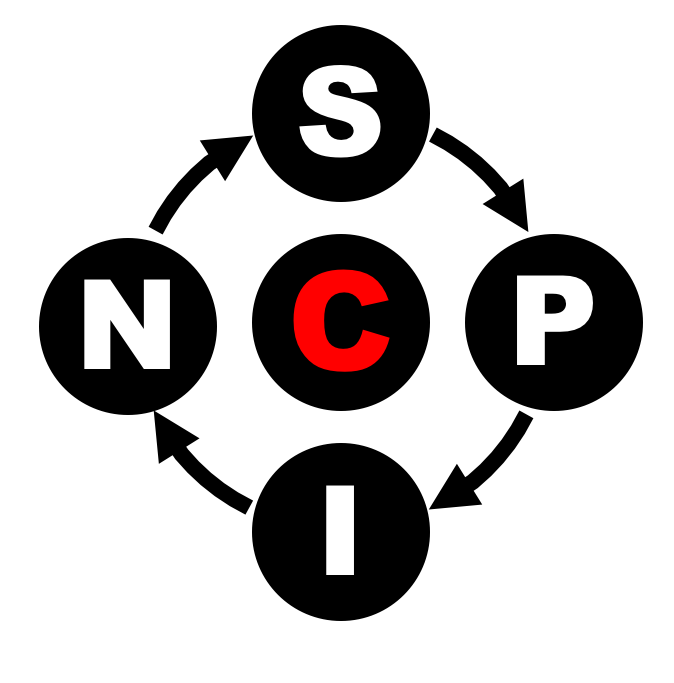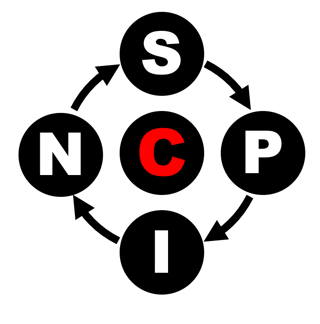Creating a new axis for SPIN® Selling
January 16, 2018

 Like many people of my generation, I was brought up on SPIN® Selling. It’s a little chastening to reflect on the fact that the book was first published nearly 30 years ago, but it (as Neil Rackham himself pointed out in a recent APS conference) remains a highly relevant element of the complex B2B sales toolkit.
Like many people of my generation, I was brought up on SPIN® Selling. It’s a little chastening to reflect on the fact that the book was first published nearly 30 years ago, but it (as Neil Rackham himself pointed out in a recent APS conference) remains a highly relevant element of the complex B2B sales toolkit.
For those new to the topic (and as a refresher for those of us who aren’t) the original SPIN® research identified that sales people used 4 key question types:
- Situational questions
- Problem questions
- Implication questions
- Need-Payoff (value) questions
Compared to the average sales person, top sales performers demonstrate a dramatically different balance between these 4 question types. There’s no doubt that mastering SPIN® sales questions is a key factor in achieving consistent sales success.
But after working with a number of organisation that have embraced SPIN®, and having re-read Rackham’s book, I’m forced to wonder if there isn’t room for a 5th question type…
As a quick reminder:
- Situational questions help us uncover important facts about the prospect’s current situation
- Problem questions help us uncover the issues associated with the prospect’s current situation
- Implication questions enable us to explore the consequences of the issues the prospect has acknowledged
- Need-Payoff questions test the potential value to the prospect of our proposed solution
Ineffective sales people have a habit of winding their prospects up by asking far too many situational questions (inexcusable when we can uncover so much through research) whereas top performing sales people tend to ask far more implication questions.
So what’s missing?
THE LOST ART OF CLOSING?
I want to credit Anthony Iannarino for stimulating my thinking in his excellent recent book “The Lost Art of Closing”. In it, he places great emphasis on the power of securing progressive commitments from the customer throughout their buying cycle.
I started to wonder whether commitment questions weren’t the axis around which all the other SPIN® questions could be helped to revolve - and the seed of this idea is actually contained within the original book.
Rackham makes the distinction between conversations that result in a continuation (the prospect is willing to continue to engage with us but fails to move forward) and an advance (the prospect agrees to do something that moves the sale forward in a significant way). But what are the most effective ways of securing these advances?
To be fair to Rackham, he refers to "obtaining commitment" as one of the key objectives of his SPIN® Selling methodology. All I'm suggesting is that the sort of questions we might choose to ask to obtain these commitments are sufficiently important and different enough to merit a fifth category of their own.
A MISSING LINK?
I believe that Iannarino’s commitment questions offer the potential missing link. They help us to qualify our opportunities, to test understanding and agreement, to achieve and confirm advances, to maintain momentum in the sales process and can act as the axis around which the other SPIN® question types can revolve.
We can and should seek validation that our prospect is committed to invest time, to explore, to take action, to allocate finance, to actively collaborate, to build consensus, to provide feedback, to resolve concerns, to make a choice, to get their choice approved, and to implement their chosen solution.
STEP ASIDE ALEC BALDWIN
Creating series of progressive incremental commitments is far more powerful than hoping that we can rescue a failing opportunity at the last minute through some sort of manipulative closing technique worthy of “Glengarry Glen Ross”.
Here are a few typical examples of commitment question structures. I am sure that you can think of many others:
- Are you ready to […]?
- Are you willing to […]?
- Are you prepared to […]?
- Would now be a good time to […]?
- Would it be reasonable to ask you to […]?
- If I can prove […] to your satisfaction, are you prepared to […]?
- Would it make sense to […]?
- Do you agree that the next logical step would be to […]?
CONDITIONAL UP-FRONT COMMITMENTS
A particularly powerful type of commitment question is the “conditional up-front commitment” (I’ll acknowledge being inspired by a Sandler Selling technique here). The basic concept is that at the start of a significant customer interaction, we agree a defined outcome, and seek the prospect’s conditional agreement to a pre-defined next step.
For example, we might say:
- "We have agreed that your objectives for [the activity] are to [their agreed objectives]
- In order to achieve this, I plan to [key agenda items] - is this in line with what you are looking for?
- If we jointly accomplish these objectives, would it be reasonable to agree upfront that our next step should be to [their commitment to a specific next step]?"
Can you see how powerful this approach can be? Rather than wait until the end of an activity to suggest the next step, we pre-negotiate it in advance. Everybody’s expectations are set consistently, and we know what we need to accomplish to advance the sale.
That’s just one of the reasons I believe commitment questions have the potential to become the axis around which all the other SPIN® question types revolve.
What do you think?
IF YOU LIKED THIS, YOU'LL PROBABLY ALSO APPRECIATE:
BLOG: Self-awareness and self-honesty in complex B2B sales
BLOG: We need to collectively develop sales competencies
BLOG: Where is your prospect in their buying journey?
WEBINAR: Selling in the Breakthrough Zone
DOWNLOAD: Our Guide to the Value Selling System
DOWNLOAD: 12-Point Value Selling Self-Assessment
ABOUT THE AUTHOR
 Bob Apollo is a Fellow of the Association of Professional Sales and the founder of UK-based Inflexion-Point Strategy Partners, home of the Value Selling System®. Following a successful career spanning start-ups, scale-ups and corporates, Bob now works with a growing client base of tech-based B2B-focused high-growth businesses, enabling them to progressively create, capture and confirm their unique value in every customer interaction.
Bob Apollo is a Fellow of the Association of Professional Sales and the founder of UK-based Inflexion-Point Strategy Partners, home of the Value Selling System®. Following a successful career spanning start-ups, scale-ups and corporates, Bob now works with a growing client base of tech-based B2B-focused high-growth businesses, enabling them to progressively create, capture and confirm their unique value in every customer interaction.


Comments